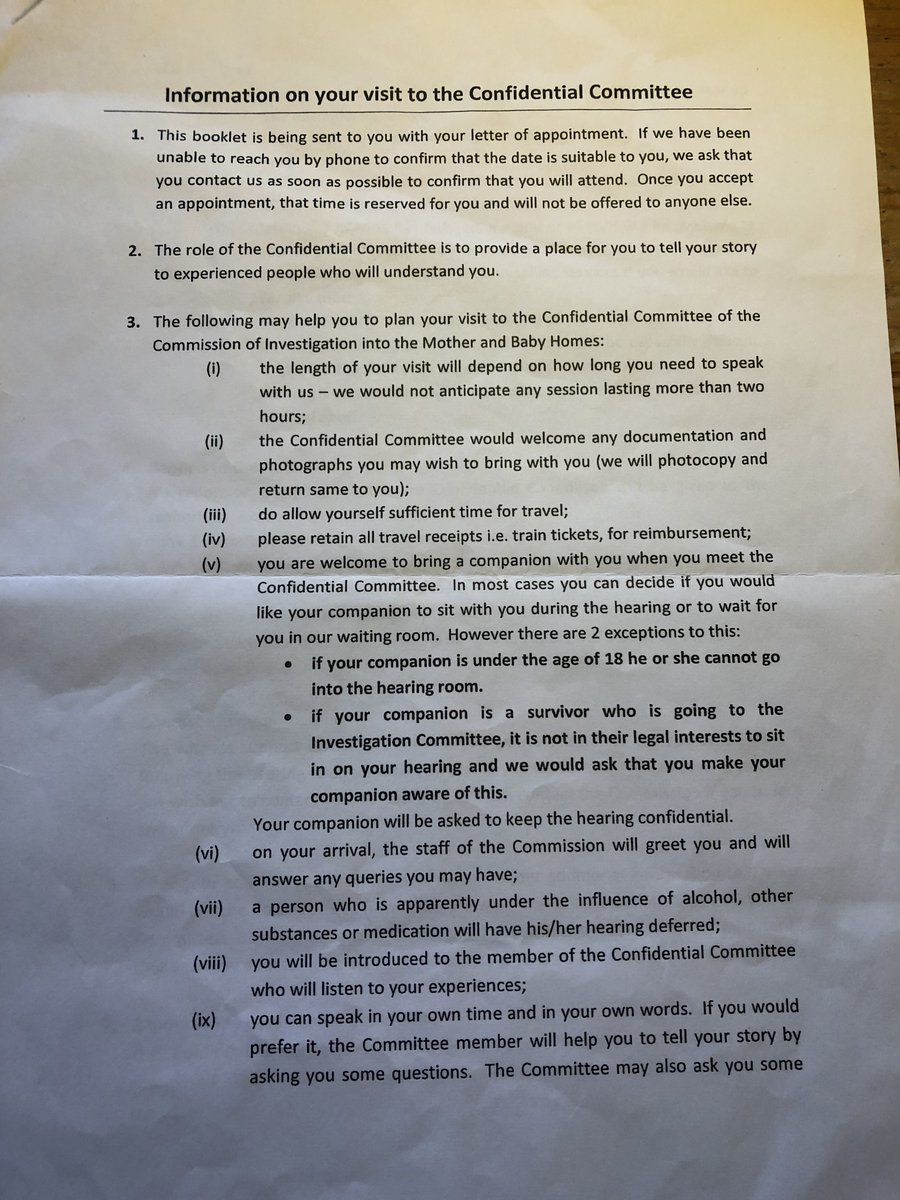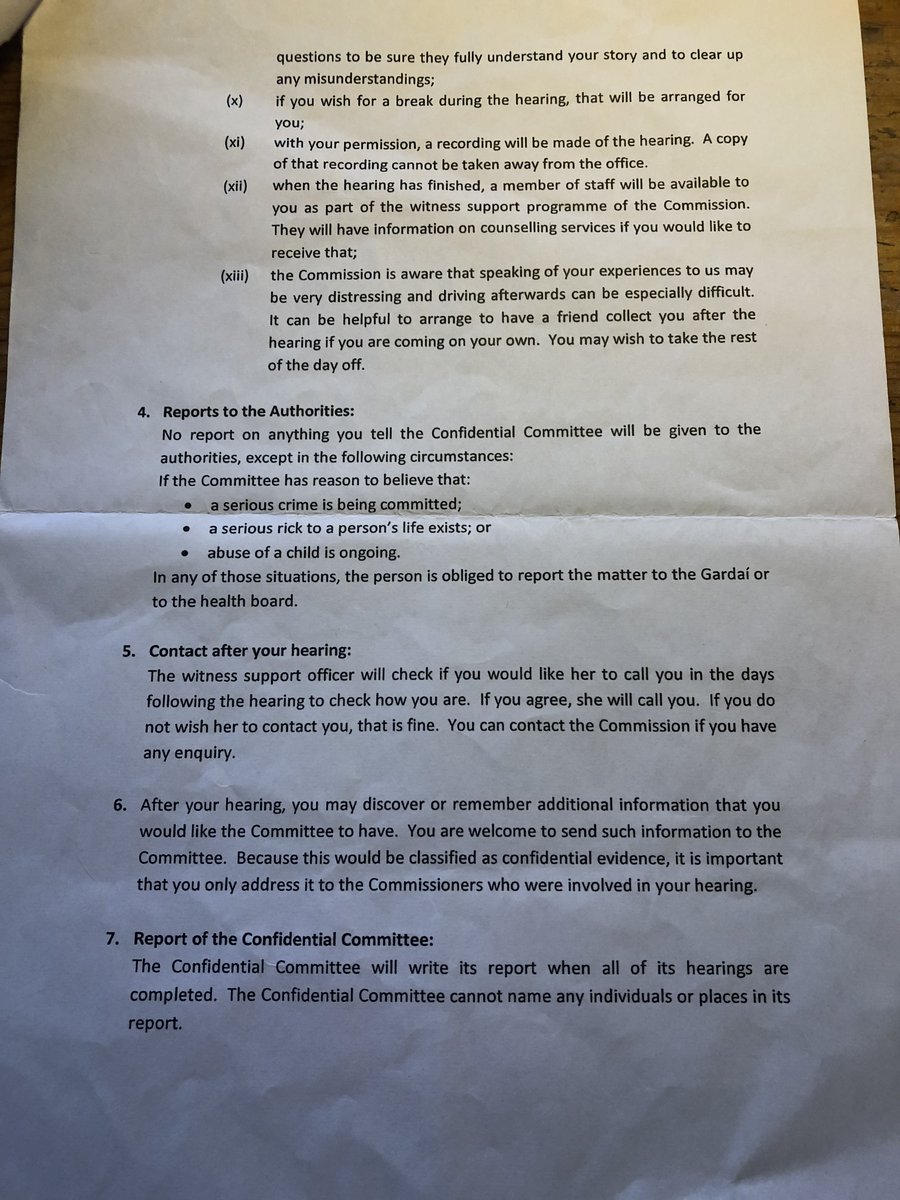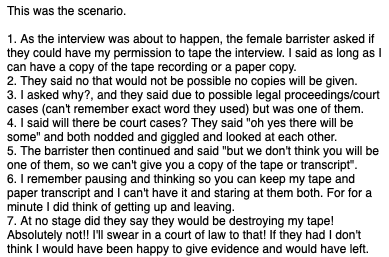The Commission of Inquiry into the Mother and Baby Home has destroyed the audio recordings of the testimony of the vast majority of the survivors who gave evidence. 550 of the 569 who spoke out have had the only full record of their evidence wiped. https://www.irishexaminer.com/news/arid-40217090.html
They cite 'consent' as legal basis for this destruction, under the GDPR- witnesses knew of the plan to destroy their testimony and consented.
"the commission said those who gave evidence were orally asked for permission to record and told that the recordings would be destroyed."
"the commission said those who gave evidence were orally asked for permission to record and told that the recordings would be destroyed."
The survivors were all provided with an information leaflet in advance of giving evidence. It doesn't say that the records of their testimony will be destoryed.
The statement from the Commission, by referring to being orally informed about destruction, seems to accept this.
The statement from the Commission, by referring to being orally informed about destruction, seems to accept this.
I've been provided with a copy of one of those information leaflets. As you can see, while it does say that the testimony will be recorded and that the witnesses can't take a copy out of the office, it doesn't say that the recordings will be destroyed.
I also have a contradictory account from a person who did give evidence to the Committee. She asked for a copy of the recording, when told that it was proposed, and was told no. She is emphatic that she was not told the record would be destroyed.
Also, and I don't think anyone has mentioned this yet, Consent is generally not available as a legal basis for processing of personal data by any any public authority. That's because of the power imbalance between a citizen, or here a survivor, and a state body.
The EDPB:
The EDPB:
In October 2020 the Minister for Children passed a law which obliged the Commission to ensure that their records be transferred to him 'without redaction' -S4(1) Commission of Investigation (Mother and Baby Homes and Certain Related Matters)Records, and Another Matter, Act 2020
If consent is ever to be relied upon as a basis for processing of personal data, a state body would need to ensure that they kept a copy of the record of that consent. If the only such record was on the audio tapes because of its oral nature, destroying them is problematic.
Page 8 of the Data Protection Commission's Guidence Note on Legal Bases for Processing Personal Data confirms "“[s]ilence, pre-ticked boxes or inactivity should not therefore constitute consent.”
Let’s look at the quote from the Commission in the article again:
"the commission said those who gave evidence were orally asked for permission to record and told that the recordings would be destroyed."
They were ‘asked’ for permission to record, but ‘told’ they’d be destroyed
"the commission said those who gave evidence were orally asked for permission to record and told that the recordings would be destroyed."
They were ‘asked’ for permission to record, but ‘told’ they’d be destroyed
Even taken on its own face, before we consider the conflicting evidence from a person who went through the process, and before we consider Recital 43 and the public authority issue, this description from the Commission isn’t a Valid Consent arrangement.

 Read on Twitter
Read on Twitter






